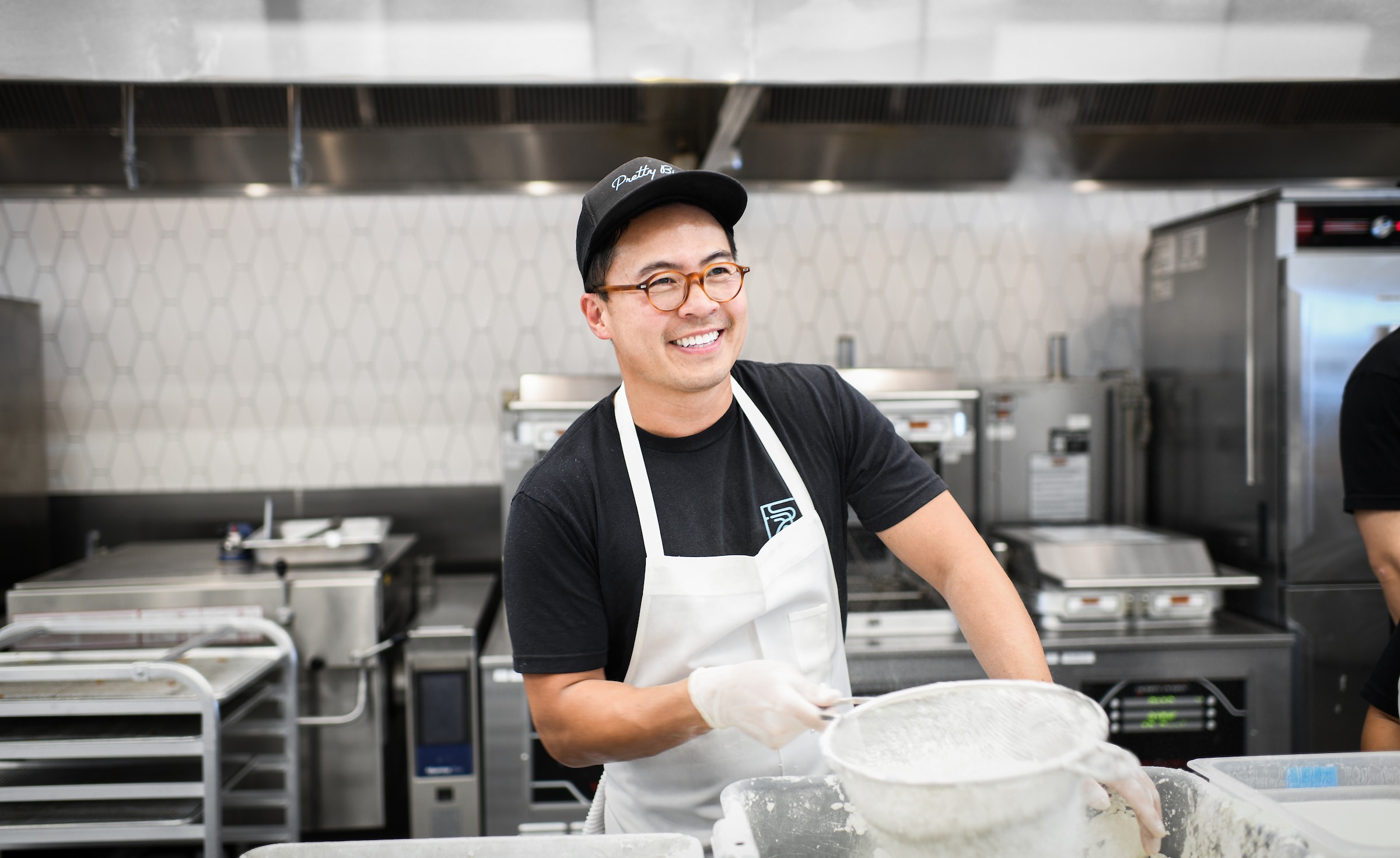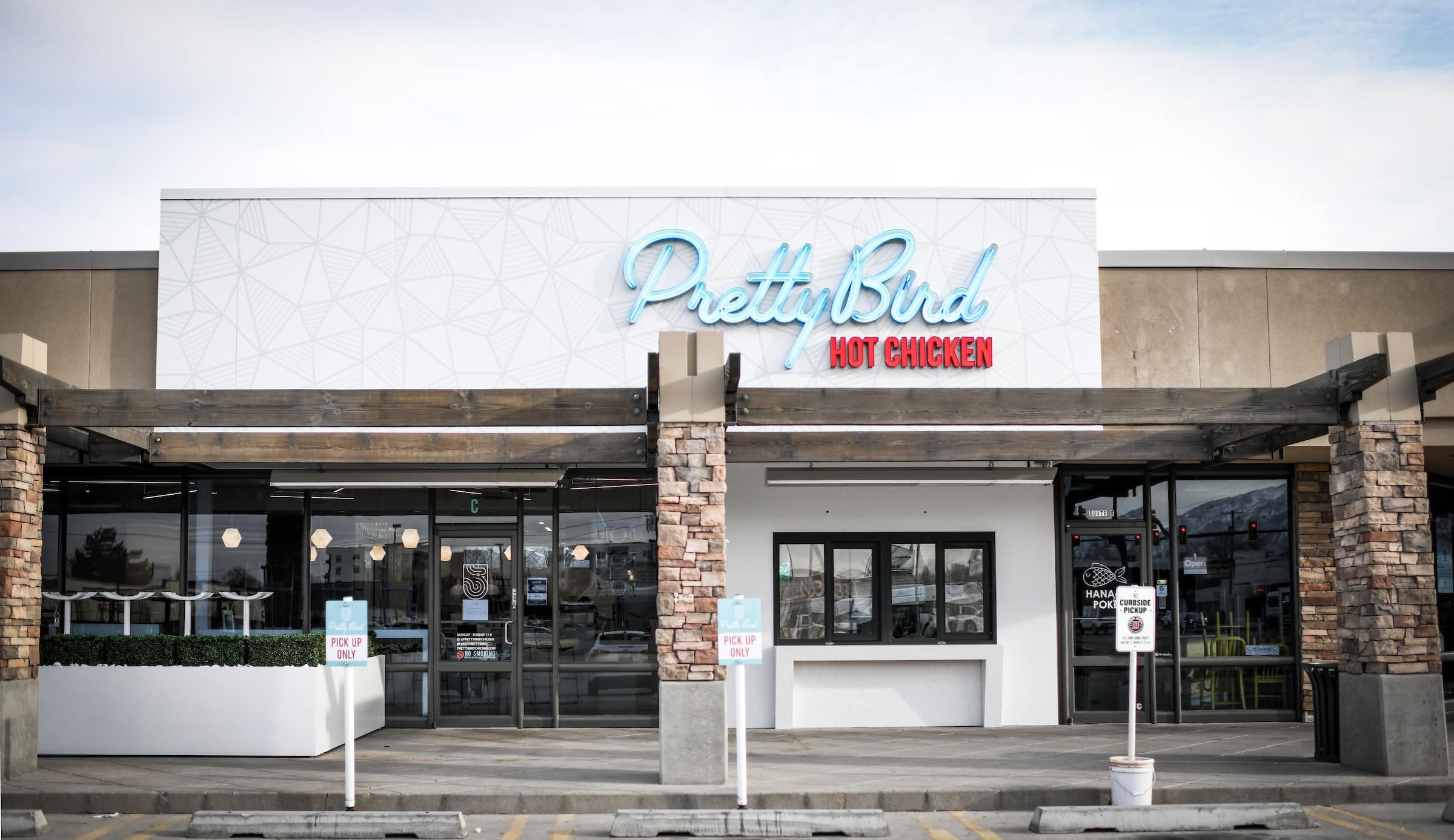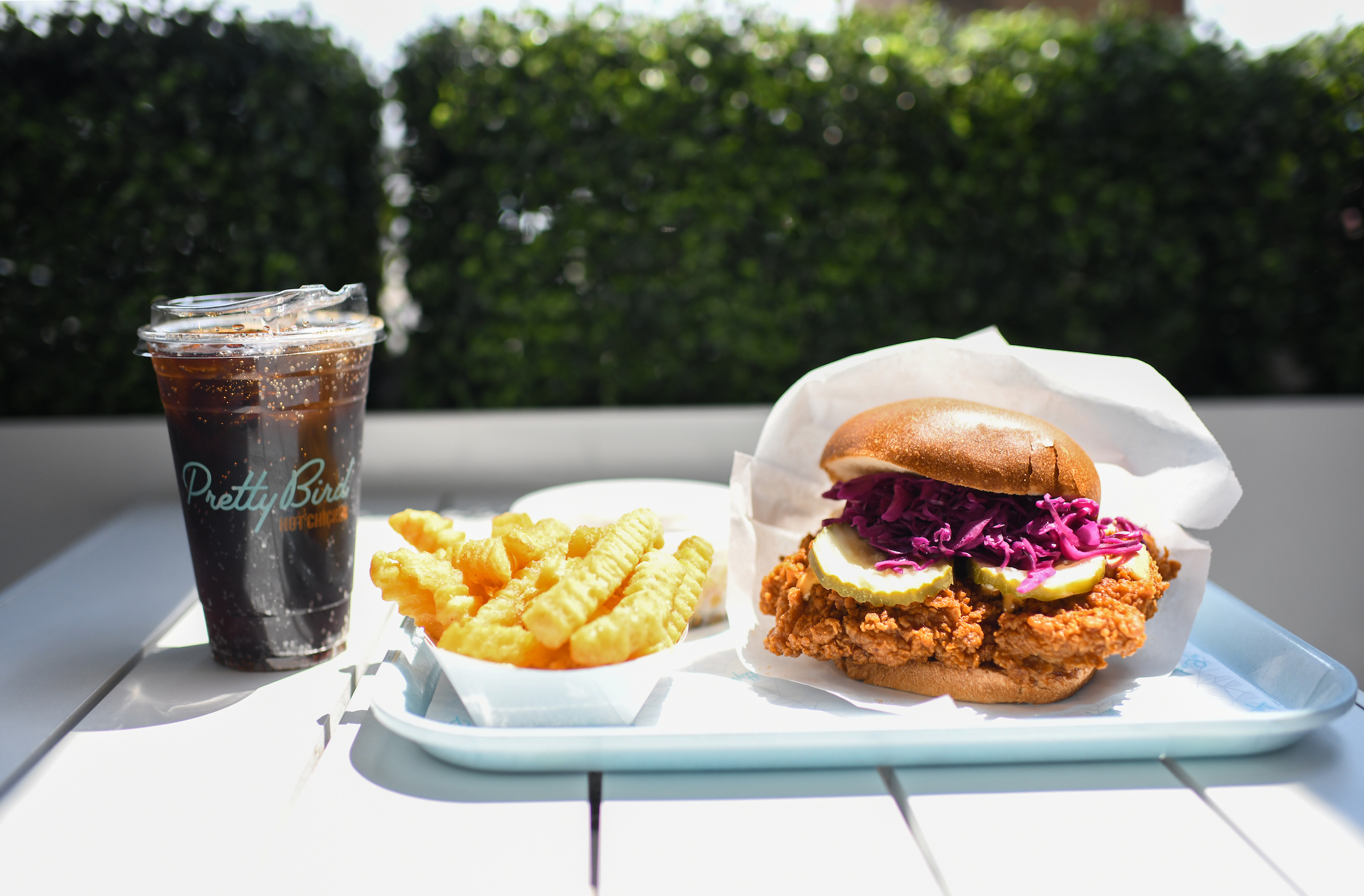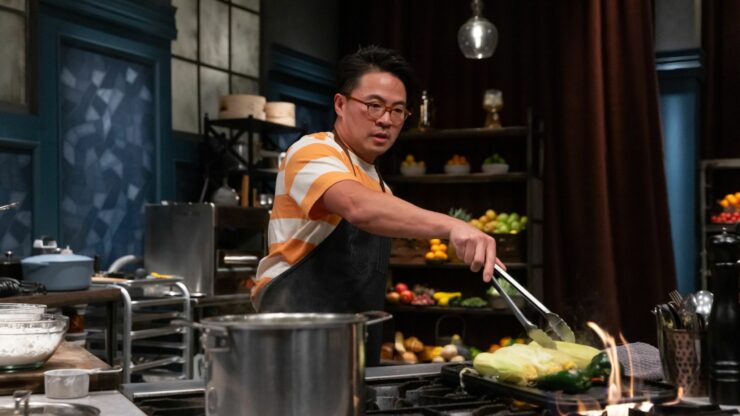Meet Viet Pham, a renowned chef with an impressive list of accolades, including Food & Wine’s Best New Chef in 2011 and a 3-time James Beard Foundation Award Semifinalist. His restaurant, Pretty Bird Chicken, has been named the Best Fried Chicken in Utah and ranked among the Top 20 Best Fried Chicken places in America by USA TODAY.
Pham’s road to success was not an easy one. In fact, he almost didn’t become a chef at all. Parentology caught up with the busy gastro-phenom to talk about overcoming adversity, honoring tradition, and the importance of family.
Coming to America
Pham and his parents fled Vietnam in the 70’s and immigrated to the United States when he was just 7 months old. Their journey to America was filled with challenges and risks, as Pham explains, “if my parents stayed (in Vietnam), they would have risked being thrown in jail or something else worse. So we ended up getting on a boat and sailing south.”
They ended up on an island called Pulau Bidong, which eventually became a refugee camp for hundreds of thousands of Vietnamese.

“This island was basically a jungle. So my dad and his siblings literally had to go up in the mountains, chop down trees. They built a treehouse, which I was born in,” Pham says, adding they ended up in Illinois in August 1979, where his uncle resided. Ultimately, their journey took them to California, where Pham lived until he was 29. Currently, he resides in Salt Lake City, Utah, just a stone’s throw away from his restaurant, Pretty Bird.
Pham’s earliest memories were of three families living in a small two-story townhouse, and the memories are bittersweet.
“When I think back, it was always really fun because there were a lot of people, and I was too young to realize the struggles. My dad ended up working for a machine shop. My mom worked for this company where she soldered chips on a motherboard, and then ultimately, it allowed them to be able to get an apartment,” Pham recalls. “My parents just worked and worked and saved up, and then ultimately moved us out to California, where they started a food business.”

Pham’s cousin had a catering truck business in California, and his parents were quick to pile on, feeling that there was more to the American Dream than what they were doing. Pham’s parents weren’t cooks, and the learning curve was steep.
“They had to learn real fast,” Pham muses. “They would buy a route and drive around selling breakfast and lunch.” Eventually, his parents owned a fleet of trucks, using their line of work (and 16-hour days) as a lesson in hard work, dedication and tenacity.
Pham’s parents worked hard to provide for their family, and as a child, Pham didn’t fully appreciate the sacrifices they made.
“As a kid, I hated what they were doing because on Sundays it would require us to give up a day of playing and hanging out with our friends, and we would have to clean the trucks, and I hated it. So I told myself that I would never get into the food industry,” he recalls.
However, fate had other plans for Pham.
First Generation Problems
Growing up as a first generation Vietnamese immigrant was tough on Pham, who wanted nothing more than to assimilate. He and his younger brother, Nam (yes, together they’re Viet-Nam) were one of very few Asian families in the predominantly white suburbs of Chicago. “Growing up, we were teased a lot. There was nothing that I wanted more than to be white,” says Pham, who swore he would change his name once he turned 18. “I resented being Asian. I resented being different because we were teased and made fun of.”
That self-loathing extended to his choice of cuisine.
“I never really liked Asian food. Growing up, every opportunity where I could, I would choose MacDonald’s or something ‘American’, because I thought if I could eat American food, it would make me feel more American.”
Pham internalized those experiences, shunning tradition and his culinary roots in order to fit in.
From Finance to Fish Sauce
Ironically, Pham’s family created a food empire out of necessity, and he would go on to create his own culinary legacy out of love.
“There isn’t any specific moment where I can think back to and say ‘this is the moment where it was influential to me.’ Cooking was a creative outlet,” says Pham. “I liked to cook and put things together and see how it would end up.”
Instead of watching cartoons, Pham would watch Jacques Pépin and Yan Can Cook. Without knowing it at the time, cooking sparked a creativity in him that just came naturally.
Even into his adult years, Pham never though that cooking would become an actual career path. At his parents’ urging, he took a job in finance.
“I remember just sitting in this cubicle building spreadsheets and analyzing sales numbers and forecasting,” he says. Finally, he popped up from a sea of cubicles, like a groundhog, and realized he could no longer operate as a cog in a machine. ”I just knew that there was so much more for me. Cooking was something where I knew I had an immediate effect on people. It would either make people angry, sad, happy, or just really satisfied.”
A Food Network Star rematch takes center stage when @ChadRosenthal & @chefvietpham enter the Grudge Match kitchen! #SuperchefGrudgeMatch is all-new Tuesday at 9|8c. pic.twitter.com/Py7wg0XWST
— Food Network (@FoodNetwork) March 27, 2023
As a young cook just starting out, Pham had to prove himself, quickly.
“As a young cook, you’re trying to establish yourself by doing what everybody else is doing, whether it’s technique or ingredients or certain trends. I would take what somebody else was doing and then apply some of my own techniques, my own identity to it.”
That strategy, however, only took him so far. He searched eagerly for different things to inspire him and give him a stronger sense of identity. He started with a simple ingredient – fish sauce.
“Fish sauce was that stepping stone that really allowed me to reevaluate who I am and allowed me to explore my identity,” Pham says. That identity is family, and fish sauce, which is basically fermented anchovies, has become a staple in his “fast casual” restaurant, Pretty Bird.

“When you ferment certain ingredients, it ends up bringing out certain flavors that you don’t normally get from just raw anchovies,” Pham says. “So I use a lot of the fish sauce in our marinades, and that’s what really makes our fried chicken and our sauces truly delicious.”
Whereas many Vietnamese chefs find their identity through more traditional dishes, such as Pho, Pham has created a unique fusion of tradition and contemporary, a nod to his past while embracing the assimilation he so hoped for as a child.
Fish Sauce is Thicker Than Water
In hindsight, Pham credits his grandmother and his mother for having such a massive influence on his career, though it didn’t register at the time. Now, he realizes that his mother’s love language has always been food. “Looking back, I saw my mom in the kitchen a lot, prepping for work or prepping dinner for us,” he says. “I would try different things, and even those little things had such a profound impact on me because of those flavors.”
“I remember as a kid, I hated fish sauce because it stunk. But if you really want this dish to be good, you have to use fish sauce. That voice still resonates in me,” he muses. “When I’m developing new recipes, the question that I would ask myself is, what would my mom do? What would mom use?”
Now in its fifth year, Pretty Bird has expanded to four restaurants. Like the brand’s devoted owner, the mix of old and new is ever-evolving.

Pham’s early experiences and familial influences have imprinted on him; like some sort of culinary epigenetics, and what once made him feel othered is the thing that now makes him shine.
“I’m barely just scratching the surface of understanding my roots and who I am,” Pham says. “If you were to ask me three years from now, there’s probably going to be a stronger sense of identity and connection to my culture and my family than there is now. Better late than never, right?”









Add comment